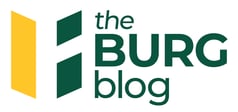Fitchburg State Univeristy welcomed a host of new faculty to campus at the start of the 2015 fall semester, and today we're happy to introduce you to one of our most recent additions. Our ongoing "Meet the Faculty" series presents Dr. Katharine Covino from our English Studies department.
Tell us where you completed your academic studies.
I completed my undergraduate degree in English and history at Rice University in Houston, Texas. After I graduated, I decided I wanted to become a teacher. With that goal in mind, I enrolled in the Post Baccalaureate Education Certification Program at St. Edward’s University in Austin, Texas and earned my Texas Teaching Credential (8-12) - Pedagogy & English, Language Arts, and Reading.

After I secured a job as a high school English teacher, I was accepted into a Master’s program in literature (also at St. Edward’s University) which I completed while working full-time.
For my doctoral work, I received a University Fellowship at the University of Massachusetts, Lowell. During my five years in the program, I completed my course work in literacy education with a focus on critical literacy and gender, while also teaching classes as a teaching assistant and an adjunct instructor.
What are your research interests?
My research interests include critical literacy, gender, (D)iscourse, identity, and critical pedagogy. My dissertation, a micro-critical ethnography, drew upon a number of related theoretical frameworks including feminist theory, poststructuralist theory, critical theory, and identity theory. Specifically, I examined the praxis (intersection of theory and practice) of critical literacy.
While it is often viewed by educators and researchers as a tool through which teachers and students can come to view gender in new ways, in reality, critical literacy can be used to explore powerful tensions in (D)iscourse and identity related gender at work within and between teachers, students, and texts.
I am interested in exploring the collision of these (D)iscourses and identities more deeply, and investigating how such tensions can further, rather than restrict, interactions in early-elementary school classrooms.
What attracted you to Fitchburg State?
When I first saw the job post for this position last fall, I was so excited because it aligned so well with my previous experiences. In other words, this position attracted me because it would allow me to continue to grow and evolve as a college instructor, a supervisor and mentor for future teachers, an active researcher and writer, and a contributing member of the state university system and the larger literacy community.
I was also so attracted to the students. Having taught for a number of years at UML, I had a real affinity for students pursuing their education at a state school. Now as a graduate of UML myself, the strong connection I feel toward these students has only deepened. I take their success very seriously. As a professor at a teaching institution it is my job (and my privilege) to support all my students as they move toward independence and mastery - to further their learning my classes and to encourage them as they continue to excel throughout their collegiate careers.
What have been your impressions of the campus community in your time so far?
I remember hearing during my on-campus interview about how nice everyone is here. That is the truth. Everyone I have met on campus has been eager to help me feel at home. This is especially true for colleagues in my department. Whether inviting me to lunch, meeting with me to discuss new policies, or checking in to see how my first weeks of teaching having been going – I feel accepted and valued. I feel like I have found ‘my people.’
Please describe your approach to teaching, and what you believe makes an effective undergraduate professor.
My approach to teaching is entirely constructivist. I believe that knowledge is built in the space between people. To that end, I foster collaborative, activity-based learning in all of my classes. In a given class, students will work in pairs, in small groups, and in large groups to pool their unique knowledge, experiences, interpretations, evidence, and analyses with the end goal of building toward conceptual understandings that are larger, richer, and deeper than anything any one person would have arrived at working alone.
Anything else you would like the campus community to know about you?
Please come by and see me in my office in Miller. I’m always happy to talk about reading, writing, and teaching (or cheeseburgers or ‘Game of Thrones’ or triathlons or my kids or – you get the idea.)
Also, you will often see me riding around campus on my little red bike. Give me a wave as I pass by!

